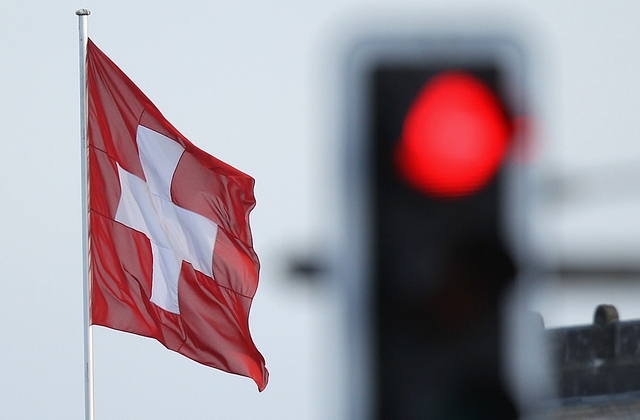
The Secret Of Swiss Success Is Decentralisation
Switzerland is the only nation from Europe or North America that gets high scores from Economic Freedom of the World for both fiscal policy and rule of law
In other words, Switzerland still has the type of system America’s Founding Fathers envisioned, with a small central government
Programmes about the improbable success of Chile and Estonia already have aired on nationwide TV, and those were joined last weekend by a show about the “sensible nation” of Switzerland.
Here’s the 28-minute programme.
When I first watched the programme, I was slightly irked that there was very little discussion of the role of fiscal policy and the importance of spending restraint and competitive tax rates.
Moreover, there was no direct mention of Switzerland’s very successful spending cap, even though the “debt brake” has generated superb results.
Indeed, Switzerland is the only nation from Europe or North America that gets high scores from Economic Freedom of the World for both fiscal policy and rule of law (a notable achievement since Wagner’s Law tells us that it is very difficult to stop government from expanding once the private sector generates a lot of wealth that can be redistributed).
But I confess I’m biased about the importance of tax and spending issues.
And as I thought about what I had seen, I realised that the programme’s focus on federalism and decentralisation made sense.
Yes, Switzerland has a modest-sized government. And, yes, the debt brake has been a huge success. But those good outcomes are in part the result of a system where most government still takes place at the local (commune) or state (canton) level.
In other words, Switzerland generally still has the type of system America’s Founding Fathers envisioned, with a small central government.
I’ve already pointed out that the level of redistribution in Switzerland is relatively low because of its decentralised model.
But there’s another feature of federalism that’s worth celebrating. As Nassim Nicholas Taleb (of Black Swan fame) has pointed out, decentralised systems are much more stable and successful since there’s far less risk of a mistaken policy being imposed on a one-size-fits-all basis.
And countless scholars, including many Nobel Prize recipients, have explained that small, competing nations were a key reason why Europe became a rich continent in the first place.
Sadly, most Europeans have forgotten this lesson and have created the EU superstate in Brussels (which helps to explain why I’m delighted that the United Kingdom voted to escape that sinking ship).
So the moral of the story, from both the video about Switzerland and from all the other evidence in the world, is that federalism is good policy.
Let’s close with an interesting example of Swiss federalism in action. The canton of Zug is known for being a low-tax haven in a country famous for having a reasonable tax regime. Well, the town of Zug is on the cutting edge of digital money.
…the town council has hopes Zug’s trend as a financial tech hub continues — having embraced the new identity with this legislative move. … As the pilot program is first implemented it will initially allow payments up to 200 Francs, and possibly introducing the ability to pay larger amounts later in the future. …analysis will ultimately determine whether or not the town council will continue allowing Bitcoin payments for municipal services. … Bitcoiners will be taking notice of this small town, and it already has the added benefit of being located in Switzerland — which is known for its business friendly environment and relatively small regulatory burden. … In fact, Switzerland’s business environment and relatively free-market economy even helped to convince the Bitcoin wallet and exchange, Xapo, to relocate to Switzerland last year. …the town of Zug itself also provides its citizens with a relatively hands-off approach to the local economy. The Swiss town of Zug showcases one of the lowest tax rates in the world. This combination of a hands-off approach by the government and large tax benefits has made the small town into a successful economic hub where global trade flourishes.
Wow, this says a lot about the quality of governance in Switzerland that a nation that doesn’t need Bitcoin (unlike, say, Greece or Argentina) nonetheless welcomes it as a competing currency.
Yet another reason why Switzerland is one of the world’s best nations.
P.S. Today’s column is about Switzerland, but I can’t resist pointing out that Hong Kong and Singapore both score highly for rule of law and small government. And Chile deserves honourable mention as well. For what it’s worth, the Princess of the Levant’s home country of Lebanon apparently has the world’s small fiscal burden, but the low score for rule of law suggests that the real story is that the government is simply too incompetent to collect and redistribute money.
This piece was first published on the author’s personal blog and has been republished here with permission.